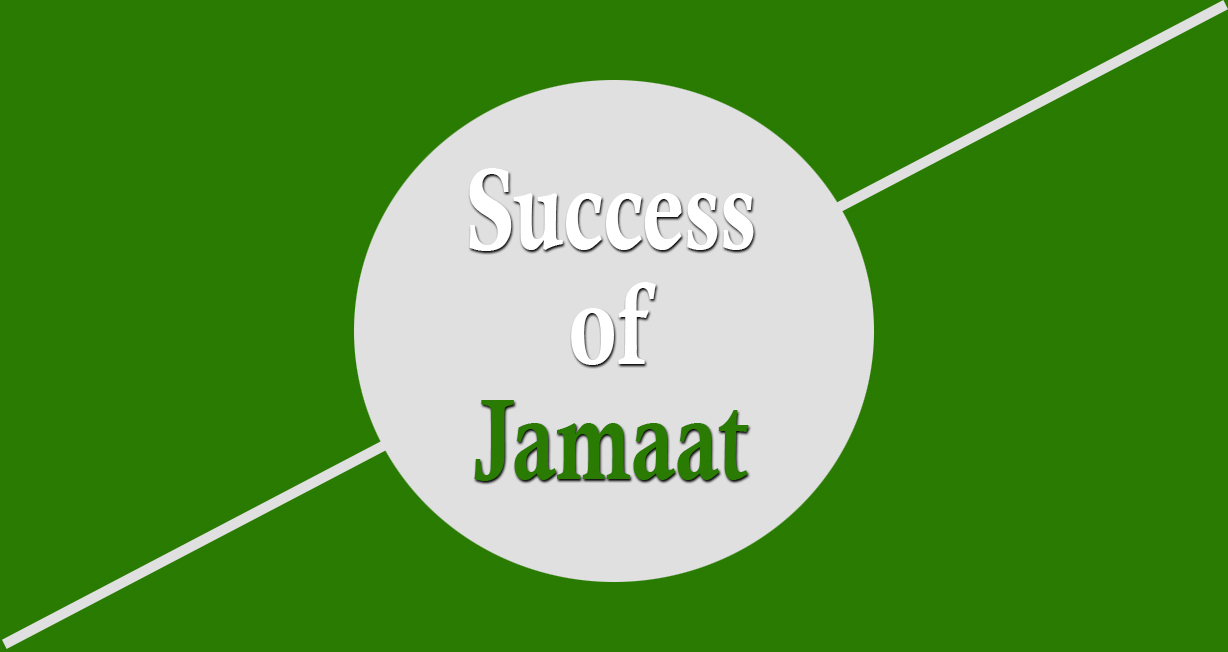
By taking part in the government of the last Jote Sarker, the two ministers of Jamaat have proved that it is very much possible to run a country with efficiency and competence by remaining free from corruption, nepotism and all forms of injustice. A big proof of this is that, during the anti-corruption drive by the present caretaker government, despite all sorts of inquiry and investigation, no trace of corruption was found in the two ministries headed by the two Jammat ministers. As part of Jamaat’s success story, the following points are worth mentioning:
> Apart from playing their constructive roles in the national parliament, the Jamaat MPs brought about a resurgence of development work in many parts of the country with their utmost honesty and sincerity.
> While the Ameer (President) of Jamaat was the Agriculture Minister of Jote Sarker, he brought about a revolution in the agriculture sector throughout the country and took measures to achieve self-sufficiency in food.
> Production of exportable agricultural goods was widely increased.
> In order to eradicate poverty and to empower the peasants, a project called “chashir bari – bagan bari” [the home of the farmer is a garden and orchard] was introduced.
> In order to sell agricultural goods easily, community markets were established.
> As part of the tree plantation programme, planting fruit trees was emphasised; and thus a new era of fruit production was heralded.
> At administrative level, a full-time director general was appointed to head agricultural research institutes. > At field level, positions of 12,000 block supervisors were upgraded to deputy-assistant agriculture officers. This epoch-making step boosted their sincerity and interest in agricultural development.
> For rapid industrialisation, eradication of unemployment, employment generation and for establishing small and medium enterprises (SMEs) around the country, an industrial policy known as Industrial Policy 2005 (IP-2005) was formulated and the SME development strategy 2005 was undertaken.
> For poverty alleviation and employment generation and to accelerate economic growth, the Small and Medium Enterprise Foundation (Bangladesh) was established.
> Modernisation of the Bangladesh Standards and Testing Institution (BSTI), establishment of the National Accreditional Board and the formation of the directorate of patent, design and trademark by combining the offices of patent and trademark registry were materialised.
> Closed-down industries such as the caustic-chlorine plant of the Karnaphuli Paper Mills and the Khulna Hard Board Mill were re-started.
> In order to generate employment for women and to ensure women’s participation in small and college industries, a step was taken to establish a national entrepreneur forum.
> The National Productivity Organisation was modernised to ensure a successful fertiliser system and the development of small and cottage industries and of human resources.
> Growth in the industrial sector (which was later on headed by the Ameer of Jamaat) during the regime of the last Jote Sarker surpassed all previous records.
> In addition, the country witnessed huge economic development, as many development programmes were undertaken and implemented in the agriculture and industrial sectors.
> When the Secretary General of Jamaat was Social Welfare Minister, different programmes of credit, government grant, increased income, training, etc were undertaken for poverty alleviation and human resource development.
> In order to materialise these programmes, budget was increased by 4 times.
> The number of the recipients of the old age benefit was increased from 400,000 to 1700,000, and along with the increase of the allowance the budget was increased by 8 times.
> For rendering proper medical treatment of certain diseases to the poor and the distressed, diabetes hospitals, heart foundations and other medical centres were founded and expanded.
> For the amelioration and welfare of the disabled, short- and long-term programmes were taken in 8 instalments.
> Along with the benefit system and interest-free loan for the disabled, as part the expansion of education for the disabled students, a permanent student stipend programme was established.
> Programmes for ensuring the longevity of the disabled were undertaken, which included the establishment of mineral water production centres and its marketing.
> Production and marketing of plastic materials were expanded.
> In order to expand social welfare activities and to ensure a lasting social safety net, for the first time a national social welfare policy was adapted.
